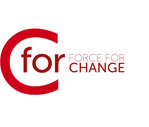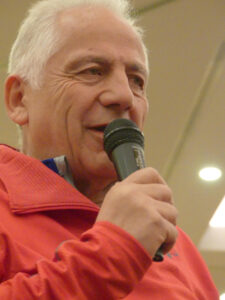SLOVAKIA: FORUM ON MULTICULTURAL SOCIETY IN SLOVAKIA WITH SPECIFIC FOCUS ON ROMA MINORITY ISSUES
Click here to See Report on Forum from Banska Bystrica, 2004
On the Margins – Slovakia
The following excerpt is drawn from the Executive Summary of the OSI publication “On the Margins – Slovakia”. It describes the situation in Slovakia from the point of view of the biggest minority group – Roma.
Slovakia is home to about half a million Roma who account for roughly a tenth of the country’s population. Most of Slovakia’s Roma live in some of the worst squalor to be found in Central and Eastern Europe. In the eastern regions of the country, a three-hour drive from Vienna, more than 124,000 Roma reside in dilapidated apartments, house trailers, and houses and shacks fashioned from wood and mud. Most of these places lack utilities and services most other Europeans have taken for granted since the end of World War II.
Slovakia’s Romany citizens face pervasive and multiple forms of discrimination rooted in racial prejudice. Local officials set the Romani citizens of Slovakia apart by denying them permanent residence status in the places where they live and by effectively prescribing the places where they are allowed to dwell. Laws and regulations, as well as decisions taken by government officials, limit Romani access to social protection benefits, health care services, and public housing and transportation. Discrimination and segregation in the education system are producing a sickly, ill-educated, unemployable generation of children. Some local and national political leaders in Slovakia argue openly that the only way to deal with the current situation is to further separate the Romani from the rest of Slovakia’s population. Public opinion surveys indicate that many, if not most, people in Slovakia share these views.
Widespread joblessness is the main source of the poverty suffered by the bulk of Slovakia’s Roma. Unemployment among the Roma has skyrocketed to about 80 percent in the last decade, a rate about four times higher than the national average; and most Romani young men take more than three years to find a job. Romani women are excluded from the work force almost entirely. Virtually all working-age Roma in some of the worst of Eastern Slovakia’s segregated settlements are without gainful employment. Segregation and racial discrimination contribute to the low levels of education and training that prevent Roma from finding work. Roma account for 83 percent of the total number of unemployed persons who lack an elementary education and more than 41 percent of the total number of the job seekers with only elementary school certificates. Unemployment on such a scale translates directly into severe poverty. Approximately 25 percent of Slovakia’s Roma have an income of less than U.S. $2 a day, compared with only 5 percent of the general population.
Slovakia: Diversity and Community Building: Lectures, Workshops and Training / Forums on Ethnic Diversity, focussing specifically on issues facing Roma minority
Project Partners:
ANNWIN, Peter and Viera Simkovice, Slovakia;
EMF London, Tara Mukherjee, Director, Monica Sala and Olufemi Hughes;
CFOR London, Arlene and Jean-Claude Audergon
Funded by
Global Conflict Prevention Fund, London and Bratislava
Confederation of Indian Organizations, London
Agenda:
4 one-day lectures: April 13 – 16 2004 Mr. Tara Mukherjee, PhD, Chairman EMF
2 workshops: 17 – 18 May & 20 – 21 May 04 Monica Sala and Olufemi Hughes
Forums / Training: 21 – 24 Sept. 2004 Arlene & Jean-Claude Audergon, CFOR
Project’s Mission
The Project’s Mission is to establish and run lectures, workshops and forums for enhancing awareness and communication within diverse communities in Slovakia. This includes learning to deal with tensions between Slovak ethnic majorities and ethnic and other minorities. The forums will provide skills for dealing with tensions and prejudices that the participants meet in their everyday work within communities. The forum will also be a space for exchange of experiences and the opportunity to work through difficult issues and build creative working relationships among people from minority and majority ethnic groups dealing with the problems faced by minority groups within the society. The project will lead to active solutions to problems people face in their work and communities. The forum will initiate small projects to work with these issues in the local communities where participants work and live.
Project participants
1. Representatives and leaders of existing projects and NGO’s that work with minority groups (Roma, national minorities, women’s position in society, etc)
2. Local and regional governments representatives
3. Representatives and leaders of Roma, national minorities groups
4. Journalists
5. University students
Other Projects and the Particular Relevance of this Project toward Democracy Building
There have been several hundreds of projects realized in the area of helping the Roma in Slovakia. The OSF web site contains a database of 900 projects working with Roma since 1992. The main focus of these projects has been to increase the educational, health and living standards of the Roma groups. The projects focused on working with national minorities and refugees are locally oriented. The database of these projects was not available. As far as we can judge, what is missing is a space or opportunity for members of majority and minority groups to meet and listen to each other, before they seek solutions. Community discussion, including working with tensions, is an essential step in developing sustainable solutions. This space should be facilitated and treated very thoroughly, so that a true shift can be reached in the groups’ perceptions of one another and ability to work together. Experience from similar projects show the importance of taking this widely neglected step to begin the process of decreasing tensions in any society. Some skills for forum participants to create such a space within their own communities will be offered during the workshops and forum training days.
The proposed project will offer experiences and special skills for a group of approximately 60 community leaders, social workers, university students and other interested individuals for dealing with racial and ethnic tensions and conflicts, applicable to the participants in leading their own projects or working within their communities.

